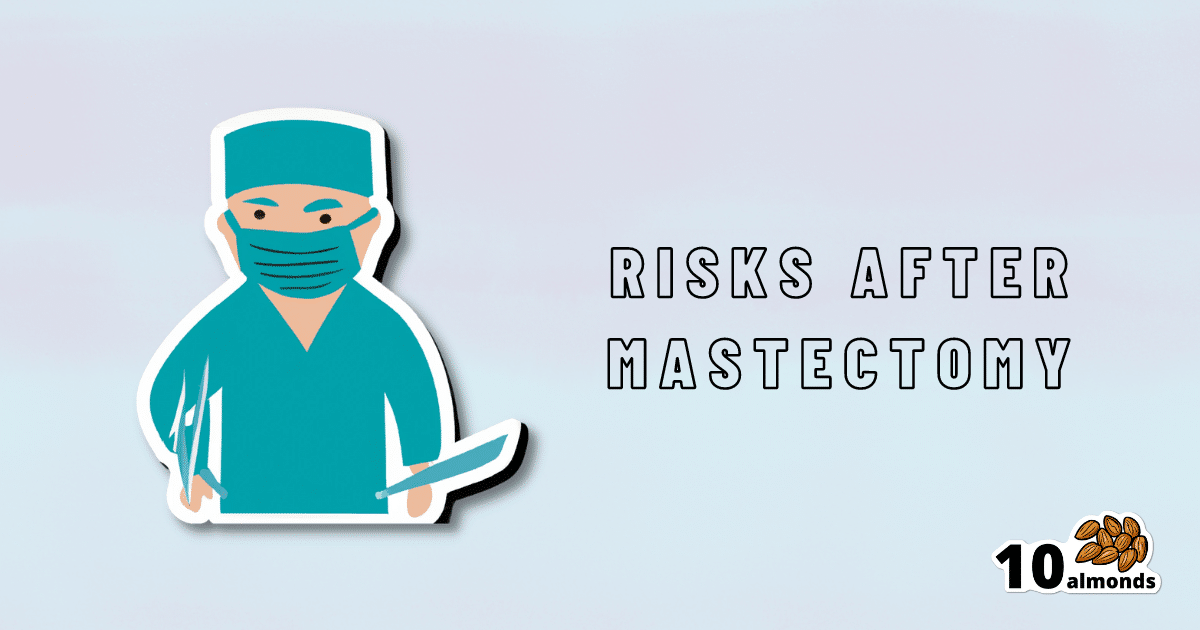A Correction, And A New, Natural Way To Boost Daily Energy Levels
Can someone with a double mastectomy still get breast cancer? Click to find out.

It’s Q&A Day at 10almonds!
Have a question or a request? You can always hit “reply” to any of our emails, or use the feedback widget at the bottom!
In cases where we’ve already covered something, we might link to what we wrote before, but will always be happy to revisit any of our topics again in the future too—there’s always more to say!
As ever: if the question/request can be answered briefly, we’ll do it here in our Q&A Thursday edition. If not, we’ll make a main feature of it shortly afterwards!
So, no question/request too big or small 😎
First: a correction and expansion!
After yesterday’s issue of 10almonds covering breast cancer risks and checks, a subscriber wrote to say, with regard to our opening statement, which was:
“Anyone (who has not had a double mastectomy, anyway) can get breast cancer”
❝I have been enjoying your newsletter. This statement is misleading and should have a disclaimer that says even someone who has had a double mastectomy can get breast cancer, again. It is true and nothing…nothing is 100% including a mastectomy. I am a 12 year “thriver” (I don’t like to use the term survivor) who has had a double mastectomy. I work with a local hospital to help newly diagnosed patients deal with their cancer diagnosis and the many decisions that follow. A double mastectomy can help keep recurrence from happening but there are no guarantees. I tried to just delete this and let it go but it doesn’t feel right. Thank you!❞
Thank you for writing in about this! We wouldn’t want to mislead, and we’re always glad to hear from people who have been living with conditions for a long time, as (assuming they are a person inclined to learning) they will generally know topics far more deeply than someone who has researched it for a short period of time.
Regards a double mastectomy (we’re sure you know this already, but noting here for greater awareness, prompted by your message), a lot of circumstances can vary. For example, how far did a given cancer spread, and especially, did it spread to the lymph nodes at the armpits? And what tissue was (and wasn’t) removed?
Sometimes a bilateral prophylactic mastectomy will leave the lymph nodes partially or entirely intact, and a cancer could indeed come back, if not every last cancerous cell was removed.
A total double mastectomy, by definition, should have removed all tissue that could qualify as breast tissue for a breast cancer, including those lymph nodes. However, if the cancer spread unnoticed somewhere else in the body, then again, you’re quite correct, it could come back.
Some people have a double mastectomy without having got cancer first. Either because of a fear of cancer due to a genetic risk (like Angelina Jolie), or for other reasons (like Elliot Page).
This makes a difference, because doing it for reasons of cancer risk may mean surgeons remove the lymph nodes too, while if that wasn’t a factor, surgeons will tend to leave them in place.
In principle, if there is no breast tissue, including lymph nodes, and there was no cancer to spread, then it can be argued that the risk of breast cancer should now be the same “zero” as the risk of getting prostate cancer when one does not have a prostate.
But… Surgeries are not perfect, and everyone’s anatomy and physiology can differ enough from “textbook standard” that surprises can happen, and there’s almost always a non-zero chance of certain health outcomes.
For any unfamiliar, here’s a good starting point for learning about the many types of mastectomy, that we didn’t go into in yesterday’s edition. It’s from the UK’s National Health Service:
NHS: Mastectomy | Types of Mastectomy
And for the more sciency-inclined, here’s a paper about the recurrence rate of cancer after a prophylactic double mastectomy, after a young cancer was found in one breast.
The short version is that the measured incidence rate of breast cancer after prophylactic bilateral mastectomy was zero, but the discussion (including notes about the limitations of the study) is well worth reading:
Breast Cancer after Prophylactic Bilateral Mastectomy in Women with a BRCA1 or BRCA2 Mutation
❝[Can you write about] the availability of geriatric doctors???? Sometimes I feel my primary isn’t really up on my 70 year old health issues. I would love to find a doctor that understands my issues and is able to explain them to me. Ie; my worsening arthritis in regards to food I eat; in regards to meds vs homeopathic solutions.! Thanks!❞
That’s a great topic, worthy of a main feature! Because in many cases, it’s not just about specialization of skills, but also about empathy, and the gap between studying a condition and living with a condition.
About arthritis, we’re going to do a main feature specifically on that quite soon, but meanwhile, you might like our previous article:
Keep Inflammation At Bay (arthritis being an inflammatory condition)
As for homeopathy, your question prompts our poll today!
(and then we’ll write about that tomorrow)
Share This Post
Learn To Grow
Sign up for weekly gardening tips, product reviews and discounts.




